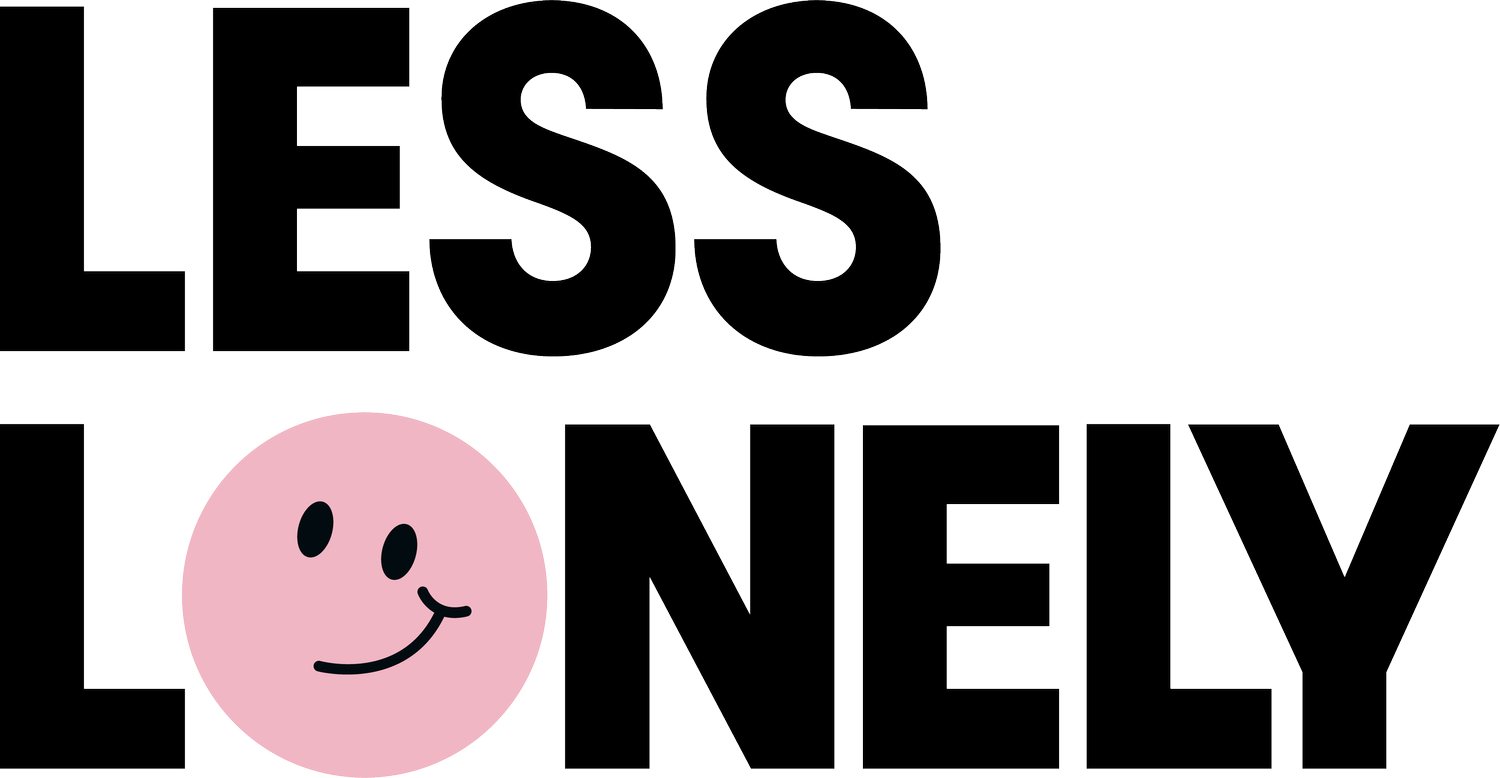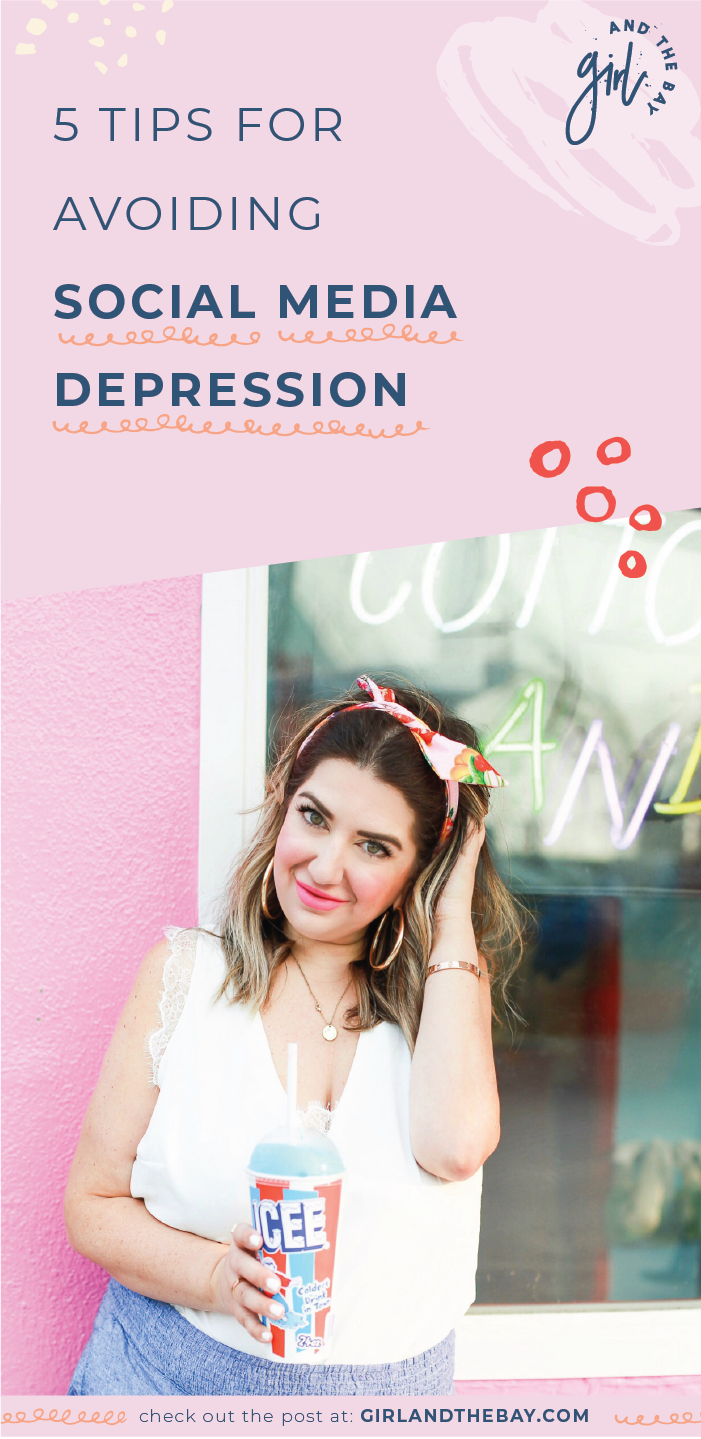Does Social Media Depress You? Implement These 5 Tips STAT
Photo by Christina Piombetti
We all have THAT one FRIEND who deactivates their Facebook account every 2.5 weeks (and, hey, maybe you're THAT friend...no judgement).
One of my best friends, would deactivate her social accounts alllllll the time. In fact, I'd gauge her emotional health on her social activity. Wondering where she is? How she's doing? Oh, her Facebook has been deactivated....her and Diego must have broken up over the weekend.
Recently, one of my close friends who is a new mom opened up about how rough it can be reading the status updates of other moms. Everyone is sharing their two cents on how long you should nurse to which amber teething necklace is going to turn your child into baby Einstein. The comparison game is thick on social media...even for newborn babes.
Oh, technology...so much good you do, yet so much harm.
There's plenty of research to suggest that too much social media use can be linked to mental health problems like anxiety and depression. One study from 2017 even suggests that Instagram is the worst app for your mental health because the endless parade of photos makes it easier to compare your own life to the perfectly filtered images on your feed. With that in mind, it's no wonder why so many of us gravitate towards digital detoxes to clear our heads.
Sure, social media's effect on your mental health depends on your personal history and the way you use your apps. But even when your Instagram feed really is overwhelming you, it can be hard to put down your phone or even delete your account — and you shouldn't have to. EVERYTHING IN MODERATION, AMIRITE?! Let's find a happy medium where you can reap the benefits social media has to offer and avoid the elements that just don't leave you feeling very good about yourself.
Larry Rosen, PhD, a research psychologist who explores our relationship with technology, says that as humans, we have an innate need to communicate, and technology has thankfully made it easier. That's not a bad thing, and if you find yourself bogged down or overwhelmed by your social media feed, there are healthy habits you can adopt to make your time online more positive, without having to go completely off the radar.
Photo by Christina Piombetti
5 tips to help you create a healthy relationship
with social media
Turn off your notifications.
Getting notifications every time someone likes or comments on your post ensures that you don't miss anything, but Dr. Rosen says that those distracting alerts can fuel your anxiety.
Whether you get notifications from social media apps or even news apps, it's drawing your attention to your phone when you're not actively devoting time to those apps (and possibly when you should be doing something else).
"What [the notification] does biochemically is that it kicks up a chemical reaction that’s linked to anxiety, and the anxiety reaches such a level that you have to check in," he says.
In reality, you probably don't need to see your friend's comment on your Instagram story right now. Instant communication can be a beautiful thing, but it couldn't hurt to turn on the "do not disturb" setting, every now and then, to give yourself a break.
Hide your apps.
Dr. Rosen also suggests moving social media apps from the front home page of your phone screen into a folder on a different page.
"You have to make it harder for yourself, so it seems like it takes more effort [to check in]," he says.
Reorganizing your apps only makes it slightly harder to check in with your feed, but "out of sight, out of mind" still applies.
Set aside some scrolling time.
If you can't stop compulsively checking your feed, Dr. Rosen suggests actually setting aside time specifically to look through your apps. Whether it's five minutes every hour or 15 minutes every other hour, set an alarm for how much time you're going to give yourself to scroll. The key is to keep to your set time, and not allow yourself to peek when the alarm has already gone off.
"Once you do that, you start to realize you were wasting a lot of time, and that you don’t need to [look] every hour," Dr. Rosen says.
The goal, he says, is to be able to make it so that you're checking in less often, and not scrolling all throughout the day. That way, when you do look through your feed, it's more conscious, instead of something you do mindlessly.
Be conscious about your "likes."
Speaking of mindful scrolling, Dr. Rosen also says that it's helpful to pay attention to what posts you like and why. Did you give that Instagram post a like because you actually like it, or because double-tapping is now as second-nature to you as scrolling?
"Once that like button’s there, you click it almost mindlessly," he says. "Then you feel like you have to like everyone’s post."
We're not saying that you have to withhold your likes, but Dr. Rosen is onto something: feeling as if you need to like (almost) every post you come across can become a vicious cycle that keeps you tethered to your phone screen.
Unfollow (or mute) people if you have to.
Trying to limit your social media use is one way to make your time online a little easier on your mental health, but if that isn't quite cutting it, it might be time to trim your follow list.
Dr. Rosen says that it might help to unfollow accounts that are making you feel down about yourself — and if it's too awkward to unfollow someone you personally know, try muting them. You may not be able to mute someone's Instagram posts, but the fact that you can now mute Instagram stories is kind of a lifesaver.
In fact, it could be helpful to go through your follow list just to make sure you're only following accounts and people that actually bring you joy.
If you are experiencing anxiety and are in need of crisis support, please call the Crisis Call Center’s 24-hour hotline at 1-775-784-8090.
If you are experiencing depression and need support, please call the National Depressive/Manic-Depressive Association Hotline at 1-800-826-3632 or the Crisis Call Center’s 24-hour hotline at 1-775-784-8090.
Photo by Christina Piombetti




